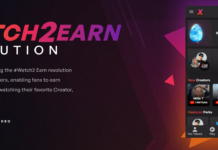
Bitcoin Cash is just over a year old, but its base has already become divided on the ideal future of the coin. A hard fork that was intended to serve as a routine upgrade has become a battle between opposing factions of the mining community, and this has culminated in Bitcoin Cash splitting into two separate blockchains and tokens.
The hard fork could have lasting effects on the coin itself and the crypto market as a whole. This article will explain everything that you need to know.
Contents
- Lead-Up to the Fork
- Bitcoin Cash Factions
- How the Fork Proceeded
- Response From Exchanges
- Market Effects
- Future of the Fork
Bitcoin Cash originated in August 2017 when it was forked from Bitcoin following a campaign spearheaded by Roger Ver and many dissatisfied Bitcoin miners. A group called Bitcoin ABC produced the node software that was used by the Bitcoin Cash community at the time of the split. This allowed Bitcoin ABC to determine the features of the newly-formed Bitcoin Cash.
Although Bitcoin Cash retained many of Bitcoin’s properties, Bitcoin ABC introduced larger maximum block sizes (8 MB rather than 1 MB) so that more transaction data could be stored in each block. This meant that Bitcoin Cash was able to offer improved transaction speeds and lower fees, and the coin quickly became a popular choice for crypto transactions.
Bitcoin ABC’s first few routine hard forks were executed without controversy, and it eventually raised maximum block sizes to 32 MB. However, block sizes quickly became a point of contention, as some believed that ABC’s block sizes still were not large enough. Bitcoin ABC eventually proposed a November 2018 upgrade that would split the community along those lines.
Due to the fact that enacting the aforementioned upgrade required miners to actually use the Bitcoin ABC node software, dissenting factions of the Bitcoin Cash community began to develop and use alternative software. These factions are described below.
Because Bitcoin ABC produced the original mining software behind Bitcoin Cash, it remained a powerful contender throughout the controversy. ABC proposed just a few changes to Bitcoin Cash: its plans included a number of modern blockchain features and scaling improvements.
More contentiously, ABC fought for an adjustable block size cap, which would allow node operators to adjust their block size within certain limits. Bitcoin ABC’s proposal did not include immediate block size changes, and merely laid the groundwork for future increases. Bitcoin SV took issue with that decision, believing instead that the block size needed to be increased as soon as possible.
For some time, it appeared that Bitcoin ABC would completely overrule the other factions due to the fact that it produced the de facto mining software and had a large share of the network’s mining power. Bitcoin ABC was also supported by major players, including Roger Ver and crypto mining giant Bitmain, which widely deployed its mining hardware prior to the November fork in order to support ABC. However, all of this was not enough to discourage Bitcoin SV from splitting off in November.
As of November 25th, Bitcoin ABC controls about 62% of the Bitcoin Cash hash rate and 69% of the network’s nodes. Although Bitcoin ABC has occasionally been overtaken by Bitcoin SV, Bitcoin ABC is leading the hash race overall and is now regarded by most as the true Bitcoin Cash. However, this may be subject to change.
In August 2018, a blockchain development company called nChain began to oppose the November hard fork proposed by Bitcoin ABC. This faction was led by nChain’s Craig Wright, who has claimed to be Bitcoin creator Satoshi Nakamoto. Although this claim is dubious, Bitcoin SV aims to restore Bitcoin’s classic features to Bitcoin Cash, with SV standing for “Satoshi Vision.”
Bitcoin SV also intends to significantly increase the block size of Bitcoin Cash in order to enhance scalability and efficiency: it proposes raising the coin’s block size from 32 MB to 128 MB. Bitcoin SV quickly gained the support of several miners and mining pools. After earning the support of the prominent CoinGeek mining pool, the faction also went on to form its own SV Pool.
This gave Bitcoin SV control over a moderate amount of the mining network, and it successfully split from Bitcoin Cash during the hardfork. As of November 25th, Bitcoin SV controls about 38% of the Bitcoin Cash hash rate and 20% of the network’s nodes. As noted, this is subject to change, and Bitcoin SV will overtake Bitcoin ABC intermittently.
A relatively silent but sizable faction called Bitcoin Unlimited also formed as a result of the conflict. This faction has the goal of resolving the differences between Bitcoin ABC and Bitcoin SV. Andrew Stone, who leads the group, has noted that both ABC and SV’s demands are “mutually compatible.”
As such, the Bitcoin Unlimited software offered a neutral compromise, allowing miners to vote for block size limits without forcing them to side with an entire faction or split the network. However, Bitcoin Unlimited users have chosen to follow the default Bitcoin Cash blockchain, which is currently Bitcoin ABC. As such, Bitcoin Unlimited’s mining statistics are identical to those of the ABC chain.
The fateful hard fork was first announced in the summer of 2018. After months of debate and preparation from mining factions, the Bitcoin Cash hard fork finally took place in mid-November. The first ABC block was mined at 1:00 PM EST on November 15, 2018. Less than half an hour later, the first SV block was mined, splitting the blockchain in two.
At the time of the fork, Bitcoin Cash ABC appeared to be the winner. ABC initially controlled 61% of the hash rate and produced the most blocks, while SV controlled just 39% of the hash rate and produced fewer blocks.
However, Bitcoin SV has refused to give up the fight, with Craig Wright calling for “continuous competition until one [side] dies.” As the fork continues, miners on each side will attempt to use their hash power to discover more blocks than the opposing side.
Although mining efforts will partially determine the value of each coin, recognition is another matter. Because Bitcoin ABC is generally in the lead, it has taken the title of Bitcoin Cash, at least in ordinary conversation. By contrast, Bitcoin SV has forfeited its claim to the Bitcoin Cash name, and is now simply referred to as “Bitcoin SV.”
The split has also prompted crypto exchanges to make a decision about how they will handle Bitcoin Cash. Most exchanges briefly suspended Bitcoin Cash trading during the hard fork, then gradually resumed trading after the conclusion of the fork. If you are a customer of any exchange, you should check for details on their blog. However, there are a few broad trends that are apparent.
Many major exchanges, such as Coinbase, have applied the traditional BCH ticker symbol to Bitcoin Cash ABC, essentially declaring it the winner. Bittrex has taken a similar course of action. Other exchanges are recognizing the division and are not picking sides: Binance, for example, will use separate BCHABC and BCHSV tickers to identify each coin.
Regardless of labels, most trading platforms are adding limited support for Bitcoin SV, and they generally will credit BCH holders with each new token. Binance, Coinbase, Kraken, and Bittrex will all replace BCH balances with both ABC and SV tokens, whether they support the trading of SV tokens or not.
Some platforms are warning against investing in Bitcoin SV. Notably, Kraken is discouraging users from investing in anything but the ABC version of Bitcoin Cash, designating it as an “extremely high risk investment.” However, it should be noted that Bitcoin Cash itself has also become a risky investment, at least in the weeks following the crash, as evidenced by the state of the crypto market.
Suggested Reading : Having a hard time choosing between Coinbase and Bittrex? Take a look at our comparison.
The Bitcoin Cash hard fork coincided with a major crash in the overall crypto market. Whether Bitcoin Cash is responsible for this, even in part, is unclear. However, the fork did coincide with widespread selloffs of other coins. Because Bitcoin Cash led this trend, some have argued that the fork may have triggered those selloffs.
In any case, it is undeniable that Bitcoin Cash has suffered: the price of BCH has fallen from its November high of $635 to roughly $175 in the weeks following the fork. However, Bitcoin Cash has maintained its relative position and remains at #4 by market cap, meaning that it is performing about as well as other leading coins.
Many have also noted that the cost of mining Bitcoin Cash is now outweighing the actual value of the coin. BitMEX Research has estimated substantial losses due to the electrical costs of mining. Developer Jimmy Song has also noted that both Bitcoin Cash tokens (ABC and SV) are more expensive to mine than Bitcoin itself. This level of unprofitability could lead some miners to abandon the coin, which would have further effects on Bitcoin Cash’s market value.
Additionally, the unstable value of the coin has led some commerce platforms to discontinue support for Bitcoin Cash. A number of payment networks, such as GlobeeCom, have dropped Bitcoin Cash altogether and are supporting neither ABC nor SV — a major blow for a coin that was once a poster child for everyday crypto transactions.
Although this article attempts to give a comprehensive overview of the state of Bitcoin Cash and its hard fork, the situation could continue to change. Various factors could affect the strength of the SV and ABC factions, and this could in turn affect the value of each coin. Current market data can be viewed at this Unhashed page.
Plenty of other resources also give up-to-date information on the situation. Coin Dance is one site that is particularly committed to monitoring Bitcoin Cash’s blockchain and mining community. In addition to displaying live measurements and statistics, Coin Dance also issues brief reports, giving you an easy way to keep on top of major changes.
The post Bitcoin Cash Hard Fork: What You Need to Know appeared first on UNHASHED.

Unhashed.com is author of this content, TheBitcoinNews.com is is not responsible for the content of external sites.
Our Social Networks: Facebook Instagram Pinterest Reddit Telegram Twitter Youtube











